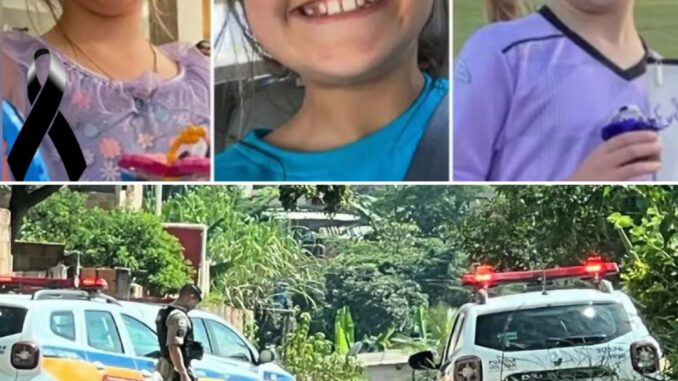
A horrifying tragedy has shaken the city of Washington and left the entire nation grieving, as three young sisters—Paityn, Evelyn, and Olivia Decker, aged nine, eight, and five—were found dead after a scheduled visit with their father, Travis Decker. What began as a routine court-ordered custody arrangement ended in one of the most disturbing child homicide cases in recent memory, raising urgent concerns about family law, mental health, and the protection of children in vulnerable custody situations.
The girls had been placed temporarily in the care of their father, a 32-year-old former soldier, for a weekend visit approved by the court. Travis Decker had reportedly been living out of a pickup truck parked in a makeshift camp about two hours from Seattle, following a steep personal and professional decline. Homeless and reportedly struggling with mental health challenges, Decker had been separated from the children’s mother, Whitney Decker, since 2022.
Last Friday, Travis picked up the girls for their visit. It would be the last time they were seen alive.
When the children weren’t returned as scheduled on Saturday, Whitney grew alarmed. Repeated phone calls to Travis went unanswered and eventually routed straight to voicemail. Her concern quickly turned to dread. When local authorities failed to respond with immediate urgency, Whitney pursued an arrest warrant for custodial interference. By Sunday night, the search ended in heartbreak.
The bodies of Paityn, Evelyn, and Olivia were found abandoned in a wooded area near Travis’s truck. According to autopsy reports, each child had been asphyxiated, with plastic bags placed over their heads and their wrists bound. The details were as horrifying as they were incomprehensible.
Travis Decker fled the scene and is now the subject of an intense manhunt involving both state and federal law enforcement agencies. Authorities have upgraded the charges against him to include triple homicide and aggravated kidnapping. His military background, including experience in extreme survival and tactical environments, has complicated search efforts.
The public outcry has been swift and visceral. Social media is flooded with tributes to the three little girls, while experts and citizens alike question how this could have been allowed to happen. Critics are pointing to serious failures in the family court system and demanding accountability for the decision to allow unsupervised visits with a parent known to be in a precarious living and mental health situation.
The tragedy has reignited a broader conversation around shared custody, especially in cases involving mental health issues, homelessness, or instability. How can the courts ensure the safety of children when weighing a parent’s right to access against real, tangible risk?
It also raises troubling questions about the treatment and reintegration of veterans, particularly those struggling with trauma, housing insecurity, and psychological health after service. Travis Decker’s background as a military serviceman is now being examined in light of what support systems, if any, failed him and contributed to this devastating outcome.
Commander Jillian Rhodes, a spokesperson for a national veterans’ advocacy group, stated, “We grieve for the innocent lives lost, and we grieve for a system that repeatedly allows vulnerable people to fall through the cracks—sometimes with irreversible consequences.”
As the search for Decker intensifies, law enforcement officials are urging the public to remain vigilant and report any sightings immediately. Meanwhile, the Decker family—and the entire community—is left to process a loss so brutal it defies comprehension.
Funeral arrangements for the sisters have not yet been announced, as their mother and extended family remain in shock, surrounded by grief and the unanswered questions that now haunt their lives.
The deaths of Paityn, Evelyn, and Olivia are not just a devastating personal tragedy. They are a national wake-up call. A reminder that laws, systems, and agencies meant to protect the most vulnerable must be held to higher standards—before it’s too late.
Leave a Reply